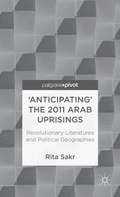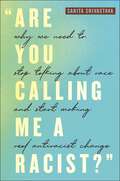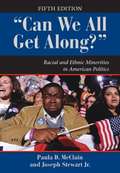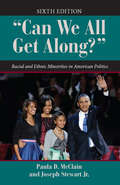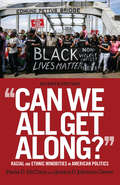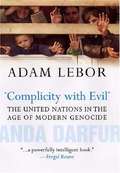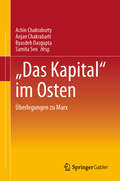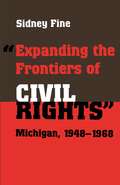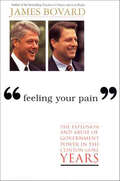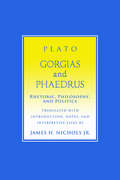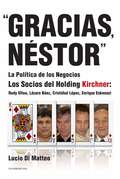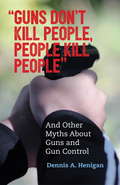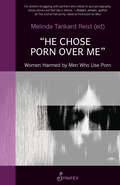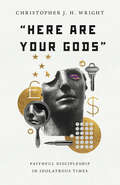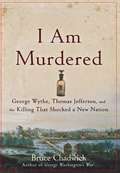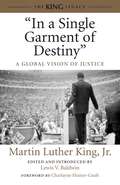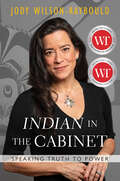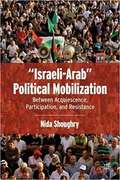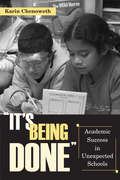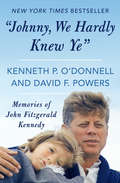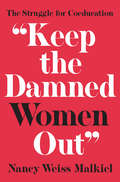- Table View
- List View
!Click Song: A Novel
by John A. WilliamsIn this fiercely authentic tale from the author of The Man Who Cried I Am, a gifted novelist confronts the powerfully entrenched, profit-motivated forces of corporate racism When his military service ends at the close of World War II—a period that will continue to haunt him throughout his life—Cato Douglass resolves to pursue a writing career and follows his dream to New York City. Soon, his first novel is published, and it appears his dream has been fulfilled, enabling him to travel the world, fall in love, marry, and start a family. But despite possessing a talent that shines brighter than that of many of his literary contemporaries, Cato discovers that he is trapped within a racist system. Only a handful of black writers receive the support of white editors and critics, and because Cato&’s work pushes the boundaries set by the publishing industry, he is doomed to a life of obscurity. The Chicago Sun-Times proclaimed !Click Song &“a major novel by one of America&’s finest living writers.&” Winner of the 1983 American Book Award, John A. Williams&’s enthralling chronicle of a writer&’s lifelong struggle to matter is a blistering tale of art, industry, family, and race.
"Anticipating" the 2011 Arab Uprisings: Revolutionary Literatures and Political Geographies
by Rita SakrThis Pivot volume explores an exciting range of powerful novels and memoirs from Tunisia, Egypt, Libya, and Syria that reveal political geographies of injustice and popular discontent thus 'anticipating' or imaginatively envisioning as well as participating in some of the major current upheavals in their particular national contexts.
"Are You Calling Me a Racist?": Why We Need to Stop Talking about Race and Start Making Real Antiracist Change
by Sarita SrivastavaWinner, 2025 Canadian Sociology Book Award, given by the Canadian Sociological AssociationShows why diversity workshops fail and offers concrete solutions for a path forwardDespite decades of anti-racism workshops and diversity policies in corporations, schools, and nonprofit organizations, racial conflict has only increased in recent years. “Are You Calling Me a Racist?” reveals why these efforts have failed to effectively challenge racism and offers a new way forward.Drawing from her own experience as an educator and activist, as well as extensive interviews and analyses of contemporary events, Sarita Srivastava shows that racial encounters among well-meaning people are ironically hindered by the emotional investment they have in being seen as good people. Diversity workshops devote energy to defending, recuperating, educating, and inwardly reflecting, with limited results, and these exercises often make things worse. These “Feel-Good politics of race,” Srivastava explains, train our focus on the therapeutic and educational, rather than on concrete practices that could move us towards true racial equity. Inthis type of approach to diversity training, people are more concerned about being called a racist than they are about changing racist behavior.“Are You Calling Me a Racist?” is a much-needed challenge to the status quo of diversity training, and will serve as a valuable resource for anyone dedicated to dismantling racism in their communities, educational institutions, public or private organizations, and social movements.
"Can We All Get Along?"
by Paula D. Mcclain Joseph Stewart Jr.In a nation built by immigrants and bedeviled by the history and legacy of slavery and discrimination, issues of liberty, equality, and community continue to challenge Americans. In the fifth edition of this widely acclaimed text, Paula McClain and Joseph Stewart combine traditional elements of political science analysis--history, Constitutional theory, institutions, political behavior, and policy actors--with a fully updated survey of the political status of four major groups: blacks, Latinos, Asian Americans, and American Indians. McClain and Stewart show similarities and differences in these groups' political action and experience, and point the way toward coalition, competition, and consensus building in the face of ongoing conflict. Two dilemmas shape the book: How do we as a nation reconcile a commitment to equality with persistent inequality and discrimination? And what can we do about it--from the perspective of ethnic and racial minorities as well as within the dominant culture? Thoroughly updated following the historic 2008 presidential election, this new edition provides a concise overview of minority politics in America.
"Can We All Get Along?"
by Paula D. Mcclain Joseph Stewart Jr.In a nation built by immigrants and bedeviled by the history and legacy of slavery and discrimination, issues of liberty, equality, and community continue to challenge Americans. In the fifth edition of this widely acclaimed text, Paula McClain and Joseph Stewart combine traditional elements of political science analysis--history, Constitutional theory, institutions, political behavior, and policy actors--with a fully updated survey of the political status of four major groups: blacks, Latinos, Asian Americans, and American Indians. McClain and Stewart show similarities and differences in these groups' political action and experience, and point the way toward coalition, competition, and consensus building in the face of ongoing conflict. Two dilemmas shape the book: How do we as a nation reconcile a commitment to equality with persistent inequality and discrimination? And what can we do about it--from the perspective of ethnic and racial minorities as well as within the dominant culture? Thoroughly updated following the historic 2008 presidential election, this new edition provides a concise overview of minority politics in America.
"Can We All Get Along?"
by Paula D. Mcclain Joseph Stewart Jr.In a nation built by immigrants and bedeviled by the history and legacy of slavery and discrimination, issues of liberty, equality, and community continue to challenge Americans. In the sixth edition of this widely acclaimed text, Paula D. McClain and Joseph Stewart Jr. combine traditional elements of political science analysis--history, Constitutional theory, institutions, political behavior, and policy actors --with a fully updated survey of the political status of four major groups: African Americans, Latinos, Asian Americans, and American Indians. The authors show similarities and differences in these groups' political action and experience, and point the way toward coalition, competition, and consensus building in the face of ongoing conflict. Two dilemmas shape the book: How do we as a nation reconcile a commitment to equality with persistent inequality and discrimination? And what can we do about it- from the perspective of ethnic and racial minorities as well as within the dominant culture? The sixth edition is thoroughly updated following the 2012 presidential election and provides new coverage of President Obama's first term including discussions of judicial appointments, the Affordable Care Act, and other policy changes. With increased coverage of native Hawaiians and all new chapter openers, "Can We All Get Along?" continues to provide the most extensive comparative coverage of minority politics in the United States.
"Can We All Get Along?": Racial and Ethnic Minorities in American Politics
by Paula D. Mcclain Jessica CarewIn a nation built by immigrants and bedeviled by the history and legacy of slavery and discrimination, how do we, as Americans, reconcile a commitment to equality and freedom with persistent inequality and discrimination? And what can we do about it? This widely acclaimed text by Paula D. McClain, with new coauthor Jessica D. Johnson Carew, provides a comprehensive and accessible overview of the historical and contemporary political experience of the major groups-African Americans, Latinos, Asian Americans, and American Indians-in the United States. It explores the similarities and differences in these groups' representation and participation in law, politics, and policymaking, discusses the enduring issues and concerns that they face, and examines intra- and inter-group competition and coalition-building in the face of enduring conflict and inequality. The seventh edition has been thoroughly revised and updated to include coverage of President Barack Obama's second term, the 2016 election, police brutality and Black Lives Matter, and the Dakota Access Pipeline protest movement. With a brand-new chapter on the intersections of race and gender, "Can We All Get Along?" remains unparalleled in its comparative coverage of the current landscape of minority politics in the United States.
"Can We All Get Along?": Racial and Ethnic Minorities in American Politics (5th Revised Edition)
by Joseph Stewart Paula D. Mcclain Jr.In a nation built by immigrants and bedeviled by the history and legacy of slavery and discrimination, issues of liberty, equality, and community continue to challenge Americans. <P><P>In the fifth edition of this widely acclaimed text, Paula McClain and Joseph Stewart combine traditional elements of political science analysis--history, Constitutional theory, institutions, political behavior, and policy actors--with a fully updated survey of the political status of four major groups: blacks, Latinos, Asian Americans, and American Indians. McClain and Stewart show similarities and differences in these groups' political action and experience, and point the way toward coalition, competition, and consensus building in the face of ongoing conflict. Two dilemmas shape the book: How do we as a nation reconcile a commitment to equality with persistent inequality and discrimination? And what can we do about it--from the perspective of ethnic and racial minorities as well as within the dominant culture? Thoroughly updated following the historic 2008 presidential election, this new edition provides a concise overview of minority politics in America.
"Complicity With Evil": The United Nations in the Age of Modern Genocide
by Adam LeborFrom the killing fields of Rwanda and Srebrenica a decade ago to those of Darfur today, the United Nations has repeatedly failed to confront genocide. This is evinced, author and journalist Adam LeBor maintains, in a May 1995 document from Yasushi Akashi, the most senior UN official in the field during the Yugoslav wars, in which he refused to authorize air strikes against the Serbs for fear they would "weaken" Milosevic. More recently, in 2003, urgent reports from UN officials in the Sudan detailing atrocities from Darfur were ignored for a year because they were politically inconvenient. This book is the first to examine in detail the crucial role of the Secretariat, its relationship with the Security Council, and the failure of UN officials themselves to confront genocide. LeBor argues the UN must return to its founding principles, take a moral stand and set the agenda of the Security Council instead of merely following the lead of the great powers. LeBor draws on dozens of firsthand interviews with UN officials, current and former, and such international diplomats as Madeleine Albright, Richard Holbrooke, Douglas Hurd, and David Owen. This book will set the terms for discussion when UN Secretary General Kofi Annan steps down to make room for a new head of the world body, and political observers assess Annan's legacy and look to the future of the world organization.
"Das Kapital“ im Osten: Überlegungen zu Marx
by Samita Sen Anjan Chakrabarti Achin Chakraborty Byasdeb DasguptaDieses Buch verfolgt einen marxistischen Ansatz mit dem Schwerpunkt auf der Klasse, um über Marx' Kapital im Kontext des Ostens nachzudenken. Es nimmt eine kritische Neubewertung einiger vertrauter Konzepte im Kapital vor und arbeitet Themen heraus, die an dessen Rand liegen. In verschiedenen Aufsätzen wird dieses Grenzgebiet erkundet, um neueKonzepte und Analysemethoden für Marx' Abhandlung im 21. Jahrhundert zu fördern. Jahrhundert voranzutreiben. Damit stellt es einen Fortschritt in der Marxschen Theorie und Politik dar.Das Buch untersucht das Kapital von Marx aus der Perspektive und dem Blickwinkel des Ostens und konzentriert sich auf viele Themen, die an den "Grenzen" des Kapitals liegen, das sich hauptsächlich mit der Entschlüsselung des entwickelten Kapitalismus befasst. Es werden neue Konzepte eingeführt und in Beziehung zu den von Marx vertretenen gesetzt, um unser Verständnis von Wirtschaft, Kapitalismus, Entwicklung und Politik zu verbessern. In dieser Hinsichtbietet das Buch eine Lesart des Kapitals, die sich von den herkömmlichen Überlegungen in der westlichen Welt unterscheidet.Der Umfang ist groß und deckt einen großen Teil des Gebiets von Marx' Kapital ab, wobei auch einige neue Themen im Zusammenhang mit dem Kapital behandelt werden. Der Inhalt gliedert sich in die folgenden Abschnitte: Rezeption des Kapitals im Osten; Wert, Ware, Mehrwert und Kapitalismus; Bevölkerung und Rente im Kapital; und Fragen jenseits des Kapitals.
"Expanding the Frontiers of Civil Rights": Michigan, 1948-1968 (Great Lakes Books Series)
by Sidney FineAlthough historians have devoted a great deal of attention to the development of federal government policy regarding civil rights in the quarter century following World War II, little attention has been paid to the equally important developments at the state level. Few states underwent a more dramatic transformation with regard to civil rights than Michigan did. In 1948, the Michigan Committee on Civil Rights characterized the state of civil rights in Michigan as presenting "an ugly picture." Twenty years later, Michigan was a leader among the states in civil rights legislation. "Expanding the Frontiers of Civil Rights" documents this important shift in state level policy and makes clear that civil rights in Michigan embraced not only blacks but women, the elderly, native Americans, migrant workers, and the physically handicapped.
"Feeling Your Pain": The Explosion and Abuse of Government Power in the Clinton-Gore Years
by James BovardJames Bovard is no fan of Big Government in the US and under the Clinton-Gore administration. In his new book, Bovard looks at Clinton and Gore's record on such abuses and absurdities as taxes, gun control, the Waco fiasco, AmeriCorps, and federal funding of every program from those dealing with disaster relief to those that put on puppet shows in Northern California. He looks at Hillary Clinton's informal role in the government, as well as Newt Gingrich's poor stewardship of the Republican party in its quest for a leaner federal government. In the style that made Lost Rights a classic, Bovard takes us on a sentimental journey through the last eight years. It's a trip no one will want to miss.
"Gorgias" and "Phaedrus": Rhetoric, Philosophy, and Politics
by Plato James H. Nichols Jr.With a masterful sense of the place of rhetoric in both thought and practice and an ear attuned to the clarity, natural simplicity, and charm of Plato's Greek prose, James H. Nichols Jr., offers precise yet unusually readable translations of two great Platonic dialogues on rhetoric.The Gorgias presents an intransigent argument that justice is superior to injustice: To the extent that suffering an injustice is preferable to committing an unjust act. The dialogue contains some of Plato's most significant and famous discussions of major political themes, and focuses dramatically and with unrivaled intensity on Socrates as a political thinker and actor. Featuring some of Plato's most soaringly lyrical passages, the Phaedrus investigates the soul's erotic longing and its relationship to the whole cosmos, as well as inquiring into the nature of rhetoric and the problem of writing.Nichols's attention to dramatic detail brings the dialogues to life. Plato's striking variety in conversational address (names and various terms of relative warmth and coolness) is carefully reproduced, as is alteration in tone and implication even in the short responses. The translations render references to the gods accurately and non-monotheistically for the first time, and include a fascinating variety of oaths and invocations. A general introduction on rhetoric from the Greeks to the present shows the problematic relation of rhetoric to philosophy and politics, states the themes that unite the two dialogues, and outlines interpretive suggestions that are then developed more fully for each dialogue.The twin dialogues reveal both the private and the political rhetoric emphatic in Plato's philosophy, yet often ignored in commentaries on it. Nichols believes that Plato's thought on rhetoric has been largely misunderstood, and he uses his translations as an opportunity to reconstruct the classical position on right relations between thought and public activity.
"Gracias, Néstor": La política de los negocios. Los socios del Holding Kirchner: Rudy Ulloa, Lázaro
by Lucio Di MatteoEl modus operandi de los socios del poder político en la Argentina:loskirchneristas no dejan documentos por escrito, de hecho las caras de losempresarios K casi no aparecen en público; pero los hechos comenzaron aregularizarse en Santa Cruz, sistematizarse en Buenos Aires y volverseprácticas habituales a nivel nacional. Lucio Di Matteo cuenta por qué no se trata de movimientos económicosaislados sino de un cuidadoso plan instrumentado por uno de lospresidentes más ambiciosos desde Perón.Los cuatro empresarios que protagonizan este libro participan denegocios relacionados con el Estado. Enrique Eskenazi con el petróleo,bancos, construcción y bodegas, entre otros. Cristóbal López con eljuego (los casinos y el hipódromo), y también el petróleo, aunque sediversifica preparándose para el poskirchnersimo. Lázaro Báez en la cajagrande de la obra pública, el petróleo nuevamente, hotelería y distintasempresas. Y Rudy Ulloa, ex chofer de Néstor Kirchner, en la caja chicadel multimedios santacruceño, gracias a la generosa pauta publicitariadel Estado Nacional.A partir de la argentinización de YPF la metodología comenzó avislumbrarse con mayor claridad y surgieron las denuncias de apriete aempresas extranjeras para que dejen sus activos en manos de la«burguesía nacional». Ezkenazi, López, Báez y Ulloa muestran una formade ejercer el poder en la Argentina y constituyen un ejemplo de lasrelaciones entre política y negocios.
"Guns Don't Kill People, People Kill People": And Other Myths About Guns and Gun Control
by Dennis A. HeniganDebunking the lethal logic behind the pervasive myths that have framed the gun control debate"When guns are outlawed, only outlaws will have guns.""An armed society is a polite society.""The only thing that stops a bad guy with a gun is a good guy with a gun.""Gun control doesn't work because criminals don't follow the law.""Gun manufacturers shouldn't be responsible for gun crime, any more than Budweiser is responsible for drunk driving.""We don't need new gun laws. We just need to enforce the ones we have.""Gun control is a slippery slope to complete gun bans."The gun lobby's remarkable success in using these engaging slogans to frame the gun control debate has allowed it to block lifesaving gun legislation for decades. But is there any truth to this bumper-sticker logic? Dennis Henigan exposes the mythology and misguided thinking at the core of these pro-gun catchphrases, which continue to have an outsized influence on public attitudes toward guns and gun control. He counters the gun lobby's messages by weaving together the most compelling current research and insights drawn from the grim reality of deadly gunfire in our homes and communities. Henigan charts a new path toward ending the American nightmare of gun violence.From the Trade Paperback edition.
"He Chose Porn over Me": Women Harmed by Men Who Use Porn
by Melinda Tankard ReistHe chose porn over me. Porn killed my marriage. It killed my trust. It destroyed my sense of self and understanding of true intimacy-CourtneyShattering the popular myth that porn is harmless, the personal accounts of 25 brave women in He Chose Porn over Me reveal the real-life trauma experienced by women at the hands of their porn-consuming partners – men who were supposed to care for them. This confronting but necessary book dares to tell the truth about pornography's destructive impact – about the men who habitually use it and the women and children who are mistreated and discarded as a result.The women in this book were collateral damage in their partner's insatiable greed for porn. Their stories tell of the crushing of intimacy, respect, connection, love. Porn colonised their families, leaving women rejected and scarred. They were subjected to sexual terrorism in their own homes. The men, turbo-charged by pornography, were intoxicated by sexualised power. They didn't care if they lost everything including their partners. In this haunting exposé, pornography is rightfully situated as an insidious tool of violence against women.The contributors, now working to re-build their lives, found a confidante in Melinda Tankard Reist who supported them in the sharing of their experiences in these pages, and to warn other women – don't date men who use porn...As long as pornography exists, we don't stand a chance of creating a fair and equal world. —Carla
"Here Are Your Gods": Faithful Discipleship in Idolatrous Times
by Christopher J. WrightWhen the Israelites exclaimed, "Here are your gods!" at the sight of the golden calf, they were attempting to hold on to the God of their history while fashioning idols for their own purposes. In today's Western world, plenty of shiny false gods still hold power—idols of prosperity, nationalism, and self-interest. Christians desperately need to name and expose these idols. We must retrieve the biblical emphasis on idolatry and apply it anew in our journey of following Jesus. In "Here Are Your Gods," Old Testament scholar Christopher J. H. Wright combines a biblical study of idolatry with practical discipleship. He calls readers to consider connections between Old Testament patterns and today's culture, especially recurring temptations to trust in political power. Now as much as ever, we need a biblically informed understanding of the many ways humans make gods for themselves, the danger of idols, and how God calls us to join him in the battle against idolatry as part of his ongoing mission to be known and worshiped by all peoples.
"I Am Murdered": George Wythe, Thomas Jefferson, and the Killing That Shocked a New Nation
by Bruce ChadwickHe signed the Declaration of Independence, represented Virginia at the Constitutional Convention, and became America's first professor of law. With his close friend and former pupil Thomas Jefferson, who once described him as a "second father," he wrote an entire new legal code for the State of Virginia. At the age of eighty in 1806, George Wythe was loved, admired, and respected by all who knew him--all but one, that is. In I Am Murdered, celebrated historian Bruce Chadwick tells the grisly, fascinating, and often astounding tale of Wythe's murder and America's very first "trial of the century." Brimming with fascinating details of early nineteenth-century medicine, forensic science, and legal issues, this fast-moving account features compelling portraits of all major players in the case and asks penetrating questions about the many controversies that swirled around the trial. George Wythe lived long enough to accuse his grandnephew George Wythe Sweeney of poisoning him and two other members of his household. Why did three prominent doctors, all friends of Wythe, insist that he hadn't been poisoned at all? Why did Wythe repeatedly refuse to press charges against Sweeney, who had forged Wythe's name on checks and stolen and sold many of his rare and precious books? Wythe's maid, Lydia Broadnax, the sole survivor of the poisoning, was also the only eyewitness to the crime. Her account was entirely credible, and she was widely recognized as an honest, reliable, and honorable woman. Why was she forbidden to testify at the trial? The answers to these questions and many more become lenses through which to view a city and a nation at a crucial and formative period of their history. Among the many distinctive figures you'll meet in this strange and chilling true story are the two attorneys who came to Sweeney's defense. Both had been good friends of Wythe and were certain of the young man's guilt, but each man had a powerful personal motive to work tirelessly for Sweeney's acquittal. One was a former attorney general of the United States, and the other was destined to become the longest-sewing attorney general in American history: Complete with a satisfying account of Wythe's ultimate revenge and a poignant depiction of his deep and abiding friendship with Jefferson, I Am Murdered is part American tragedy, part CSI circa 1806, and all intriguing examination of the unjust death of a Founding Father.
"In a Single Garment of Destiny": A Global Vision of Justice (King Legacy #8)
by Martin Luther King Jr. Lewis V. Baldwin Charlayne Hunter-GaultAn unprecedented and timely collection that captures the global vision of Dr. King--in his own words. Too many people continue to think of Dr. King only as "a southern civil rights leader" or "an American Gandhi," thus ignoring his impact on poor and oppressed people around the world. "In a Single Garment of Destiny" is the first book to treat King's positions on global liberation struggles through the prism of his own words and activities. From the pages of this extraordinary collection, King emerges not only as an advocate for global human rights but also as a towering figure who collaborated with Eleanor Roosevelt, Albert J. Luthuli, Thich Nhat Hanh, and other national and international figures in addressing a multitude of issues we still struggle with today--from racism, poverty, and war to religious bigotry and intolerance. Introduced and edited by distinguished King scholar Lewis Baldwin, this volume breaks new ground in our understanding of King.
"Indian" in the Cabinet: Speaking Truth to Power
by Jody Wilson-RaybouldA compelling political memoir of leadership and speaking truth to power by one of the most inspiring women of her generation Jody Wilson-Raybould was raised to be a leader. Inspired by the example of her grandmother, who persevered throughout her life to keep alive the governing traditions of her people, and raised as the daughter of a hereditary chief and Indigenous leader, Wilson-Raybould always knew she would take on leadership roles and responsibilities. She never anticipated, however, that those roles would lead to a journey from her home community of We Wai Kai in British Columbia to Ottawa as Canada’s first Indigenous Minister of Justice and Attorney General in the Cabinet of then newly elected prime minister, Justin Trudeau. Wilson-Raybould’s experience in Trudeau’s Cabinet reveals important lessons about how we must continue to strengthen our political institutions and culture, and the changes we must make to meet challenges such as racial justice and climate change. As her initial optimism about the possibilities of enacting change while in Cabinet shifted to struggles over inclusivity, deficiencies of political will, and concerns about adherence to core principles of our democracy, Wilson-Raybould stood on principle and, ultimately, resigned. In standing her personal and professional ground and telling the truth in front of the nation, Wilson-Raybould demonstrated the need for greater independence and less partisanship in how we govern. “Indian” in the Cabinet: Speaking Truth to Power is the story of why Wilson-Raybould got into federal politics, her experience as an Indigenous leader sitting around the Cabinet table, her proudest achievements, the very public SNC-Lavalin affair, and how she got out and moved forward. Now sitting as an Independent Member in Parliament, Wilson-Raybould believes there is a better way to govern and a better way for politics—one that will make a better country for all.
"Israeli-Arab" Political Mobilization: Between Acquiescence, Participation, and Resistance
by Nida Shoughry"Israeli-Arab" Political Mobilization: Between Acquiescence, Participation, and Resistance by Nida Shoughry.
"It's Being Done": Academic Success in Unexpected Schools
by Karen Chenoweth Kati HaycockThis straightforward and inspiring book takes readers into schools where educators believe--and prove--that all children, even those considered "hard-to-teach," can learn to high standards. Their teachers and principals refuse to write them off and instead show how thoughtful instruction, high expectations, stubborn commitment, and careful consideration of each child's needs can result in remarkable improvements in student achievement.
"It's Being Done": Academic Success in Unexpected Schools
by Karen Chenoweth2007 Notable Education Book, American School Board Journal This straightforward and inspiring book takes readers into schools where educators believe—and prove—that all children, even those considered &“hard-to-teach,&” can learn to high standards. Their teachers and principals refuse to write them off and instead show how thoughtful instruction, high expectations, stubborn commitment, and careful consideration of each child&’s needs can result in remarkable improvements in student achievement.
"Johnny, We Hardly Knew Ye": Memories of John Fitzgerald Kennedy
by David F. Powers Kenneth P. O'DonnellThis classic New York Times bestseller is an illuminating portrait of JFK—from his thrilling rise to his tragic fall—by two of the men who knew him best. As a politician, John Fitzgerald Kennedy crafted a persona that fascinated and inspired millions—and left an outsize legacy in the wake of his murder on November 22, 1963. But only a select few were privy to the complicated man behind the Camelot image. Two such confidants were Kenneth P. O&’Donnell, Kennedy&’s top political aide, and David F. Powers, a special assistant in the White House. They were among the president&’s closest friends, part of an exclusive inner circle that came to be known as the &“Irish Mafia.&” In Johnny, We Hardly Knew Ye, O&’Donnell and Powers share memories of Kennedy, his extraordinary political career, and his iconic family—memories that could come only from intimate access to the man himself. As they recount the full scope of Kennedy&’s journey—from his charismatic first campaign for Congress to his rapid rise to national standing, culminating on that haunting day in Dallas—O&’Donnell and Powers lay bare the inner workings of a leader who is cherished and mourned to this day, in a memoir that spent over five months on the New York Times bestseller list.
"Keep the Damned Women Out": The Struggle for Coeducation (The William G. Bowen Memorial Series in Higher Education)
by Nancy Weiss MalkielAs the tumultuous decade of the 1960s ended, a number of very traditional, very conservative, highly prestigious colleges and universities in the United States and the United Kingdom decided to go coed, seemingly all at once, in a remarkably brief span of time. Coeducation met with fierce resistance. As one alumnus put it in a letter to his alma mater, "Keep the damned women out." Focusing on the complexities of institutional decision making, this book tells the story of this momentous era in higher education--revealing how coeducation was achieved not by organized efforts of women activists, but through strategic decisions made by powerful men.In America, Ivy League schools like Harvard, Yale, Princeton, and Dartmouth began to admit women; in Britain, several of the men's colleges at Cambridge and Oxford did the same. What prompted such fundamental change? How was coeducation accomplished in the face of such strong opposition? How well was it implemented? Nancy Weiss Malkiel explains that elite institutions embarked on coeducation not as a moral imperative but as a self-interested means of maintaining a first-rate applicant pool. She explores the challenges of planning for the academic and non-academic lives of newly admitted women, and shows how, with the exception of Mary Ingraham Bunting at Radcliffe, every decision maker leading the charge for coeducation was male.Drawing on unprecedented archival research, "Keep the Damned Women Out" is a breathtaking work of scholarship that is certain to be the definitive book on the subject.

